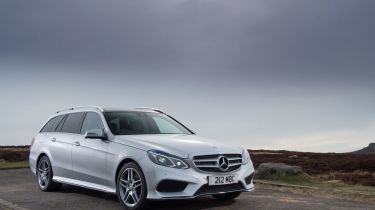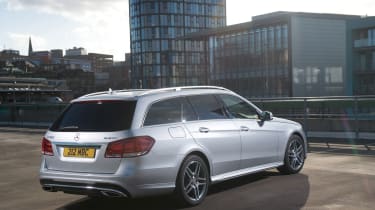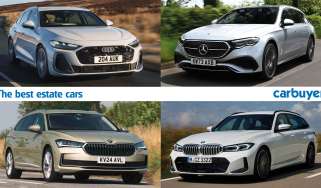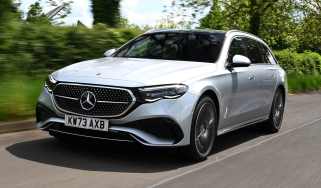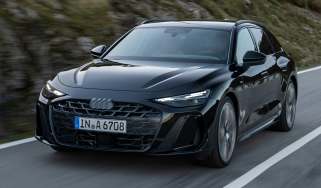Mercedes E-Class estate (2009-2016) - MPG, running costs & CO2
Mercedes resale values aren’t what they once were, so stick to more economical versions and be careful not to over-spec your Mercedes E-Class estate
An engine line-up dominated by efficient, mid-size diesel engines means the Mercedes E-Class estate is surprisingly cheap to run. It’s not cheap to buy, however: prices start at around £36,000 and rise to around £44,000 for the range-topping model. However, the E-Class’ main rival, the BMW 5 Series Touring, is not exactly inexpensive, either.
The E-Class’s warranty is a three-year/unlimited-mileage deal, so high-mileage business users in particular won’t need to worry about unexpected mechanical repair bills. Servicing isn’t cheap, but then that’s part and parcel of prestige car ownership. Mercedes resale values aren’t what they once were, so you should stick to the more economical versions and be careful not to over-spec your E-Class estate.
Mercedes E-Class estate MPG and CO2
The most efficient E-Class estate is the clever E300 BlueTEC Hybrid diesel (BlueTEC refers to the additive the car uses to clean up its exhaust emissions). Thanks to its combination of an electric motor and diesel engine, it returns 64.2mpg fuel economy and costs just £30 a year to tax.
The E220 BlueTEC diesel is better value, though. This cheapest version is around £5,000 less expensive than the Hybrid, but achieves 60.1mpg and costs £110 a year to tax. It’s our choice for both private and company-car buyers on a budget.
More reviews
In-depth reviews
The E220 is certainly more impressive than its only slightly more powerful sister model, the E250 CDI, which only manages a disappointing 51.4mpg and costs £145 a year to tax. Incredibly, the much more powerful E350 BlueTEC returns the same figures, partly owing to its nine-speed automatic gearbox (the others are all seven-speed). It’s around £5,000 more expensive than the E250, but its greater smoothness and refinement suits the E-Class perfectly. High-mileage drivers and anyone who regularly travels with a fully laden car will find it ideal.
The black sheep in the line-up is the E250 CGI petrol. Not only is it around £1,000 more expensive than the E220 BlueTEC diesel, it manages just 45.6mpg and costs £145 a year to tax. It’ll lose its value faster than the other versions on the used market, too.
Mercedes E-Class estate insurance group
The E-Class estate occupies insurance groups 33 to 43 – typical for a big prestige saloon. Mercedes offers its own insurance scheme, so it might be worth asking for a quote and comparing it with your existing provider. Also ask about alloy wheel insurance, which Mercedes can also provide.
Mercedes E-Class estate warranty
The E-Class’ warranty runs for unlimited miles up to three years. This is the same as the cover offered by BMW, but better than Audi’s, which is limited to 60,000 miles. The previous-generation E-Class, on which the current model is based, finished 27th in our Driver Power 2014 owner satisfaction survey, in line with its results in similar polls. As a result, it’s unlikely you’ll have to make use of the warranty in the first three years of the car’s life, but it’s good to know it’s there all the same.
Mercedes E-Class estate servicing
Mercedes service costs are on a par with Audi’s and BMW’s – in other words, more expensive than mainstream brands such as Ford and Vauxhall. Mercedes’ Service Care scheme enables you to manage your maintenance costs by paying a fixed amount each month.
Which Is Best?
Cheapest
- NameE200 AMG Line 5dr 9G-Tronic
- Gearbox typeSemi-auto
- RRP£58,370
Most Economical
- NameE300e Urban Edition 5dr 9G-Tronic
- Gearbox typeSemi-auto
- RRP£67,450
Fastest
- NameE450d 4M AMG Line Premium 5dr 9G-Tronic [Pan Roof]
- Gearbox typeSemi-auto
- RRP£82,120

